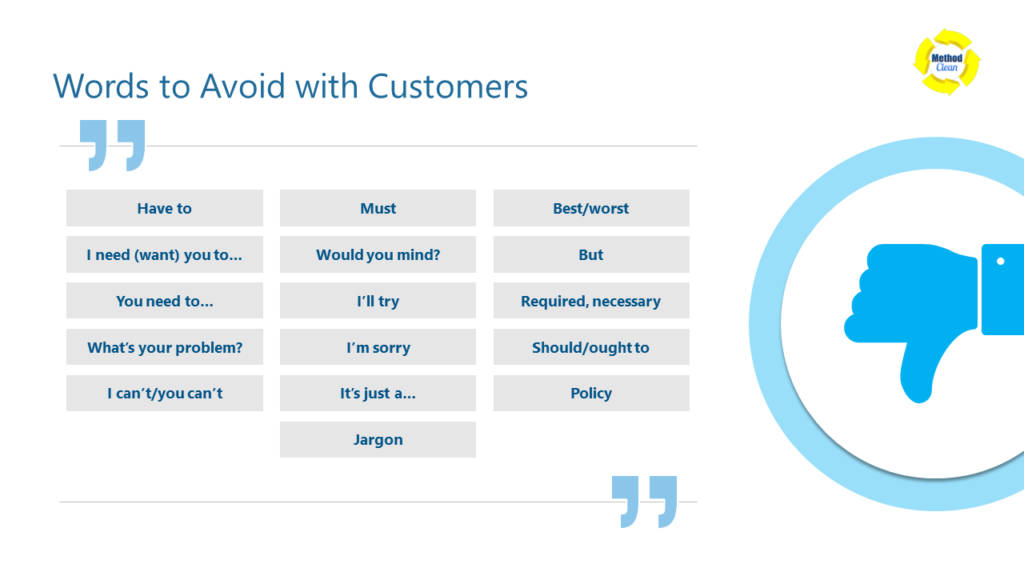Grow Your Commercial Cleaning Service With Assertiveness
Assertiveness is one of the basic skills to selling more commercial cleaning accounts. There are many benefits of being assertive such as; better time management, increased self-esteem and the ability to negotiate more effectively. Assertion means standing up for what you want and your point of view.
Often when owners of cleaning services are researching information about sales, marketing topics they run into the same basic questions over and over again. We want to explore some core conceptual ways to think.
Our belief is with 20,000 towns in the US, 100,000 cleaning services, there is no one tactic that applies to all of them. We believe marketing is specific and not just generic answers, this is what account based marketing is all about.
Sometimes it means expressing opposition. It means confrontation. It takes courage. Some find it harder than others because of their natural easy-going style and therefore more practice is required. However, the aim should not be just to gain a win. The aim should be to solve the problem and sell the account.
All salespeople and owners of janitorial and commercial cleaning services should learn to become more assertive.

What Does it Mean To Be Assertive?
Write down your thoughts on what you think it looks and sounds like. Compare them with the examples on the following pages.
Assertiveness is:
‘Standing up for your rights while respecting the rights of others’
or
Aiming for a ‘win: win’ result.
Being Assertive can be compared to two other ways of behaving: Aggressive and Passive.
Aggressive
is caring only for what you want or your point of view. It means not considering the rights of others or even thinking of them as being worth less or inferior to your own.
Passive
is thinking that your views, want and needs are less worthy or important than those of others.
We can sum all these up as follows:
Assertive = win: win
I win and you win
Aggressive = win: lose
I win and you lose (or maybe I do not even care if you win or lose)
Passive = lose: win
I lose or I think that I am less important than you are, so your needs are more important than mine

How To Find The Middle Selling Cleaning Services
In my 25 years of interacting with owners of commercial cleaning services, I have found most are either too aggressive and act like a bull in a china shop or too passive and let clients and employees walk all over them.
The key is finding the middle.
Here are some examples of being too aggressive or passive with clients:
Aggressive
- That’s typical of you
- Got it wrong again, have you?
- When will you people ever learn……?
- The trouble with you is….
- Not bad for a man/woman
- You’re stupid……
- I don’t care what you think. This is how I want…….
Can you add some more of your own?
Passive
- I’m sure you’re right
- I’m only a ….
- You’re the boss….
- I’m not very good at….
Can you add some more of your own?
Here is How to Be Assertive and Not Too Aggressive or Passive With Clients
Being Assertive
- Use the words ‘I’ and ‘MY’; be honest about your own ideas and feelings
- Distinguish between feelings or opinions and facts. Do not mix them up
- Stick to the facts. Don’t resort to abuse, name-calling, belittling the other person’s point of view or reasons and so on
- Distinguish between facts and feelings/opinions of others. We all like different things and have a right to do so
- Give reasons for what you are saying but do not do it excessively. Where there is a disagreement, do not try to win by the number of arguments that you put forward but by the quality of them
- Be alert to aggressive and passive behavior in others
- Do not sink to the level of the aggressive person. Using personal abuse or even violence can have the same effect as throwing gas on a fire
- Stay calm and reasonable
- Do not fight force with force – be smarter
- Do not be patronizing or condescending. Treat others as you would wish to be treated
- Consider whether there will be any benefit to both of you from you speaking out. If not, then consider whether there is value in it
- Be very clear about what you are trying to achieve, and the long-term consequences both of achieving it and of how you are going about it
- You have a right to say no. So, do they
- Do not confuse requests with commands – say things like please do this, not please can you do this
- You have a right NOT to be assertive if you want.
- Be direct and straightforward
- Use repetition, ‘Broken Record’ to get past aggressive barriers
- Use empathy
- Know when to give in, back off or run away!
Test Yourself and See How Assertive YOU Are?
To test your assertiveness there are some typical situations below. Be completely honest with yourself and write down how you would naturally react in each situation.
You are in a restaurant and order a steak medium-rare, but it is served to you well done.
You would:
- Accept it without comment because you sometimes like it well-done anyway
- Angrily refuse the steak and insist on seeing the manager to complain about the poor service
- Call the waiter and indicate you ordered your steak medium-rare and would like another steak cooked to your requirements
You are a customer waiting in a line to be served in your busy lunch hour. Suddenly, a frail old lady steps in line ahead of you and claims that she is in a hurry.
You would:
- Let her stay in front of you since she is already in line and it would be rude to speak out
- Pull her out of line and, in a loud and angry manner make her go to the back
- Calmly indicate to her that you are also in a hurry and have been in line, then point out where it begins
After walking out of a store where you purchased some items you discover you were short-changed by $3.
You would:
- Let it go since you are already out of the store and have no proof you were short-changed. After all it’s only $3
- Go to the manager and argue that you were cheated by the assistant, then demand the proper change
- Return to the clerk and inform him/her of the error
You are in a group discussion at work, which includes your boss. A colleague asks you a question about your work, but you don’t know the answer.
You would:
- Give your colleague a false, but plausible answer so your boss will think you are on top of things
- Do not answer, but attack your colleague by asking a question you know he/she could not answer
- Indicate to your colleague you are unsure just now, but offer to give him/her the information later
You are in the middle of watching your favorite television program when your spouse comes in and asks you for a non-urgent favor, which could mean missing the rest of the show.
You would:
- Do the favor as quickly as possible, then return to the program to finish watching what is left of it
- Say “No way, I’m not missing this. You should have asked me earlier.” then finish watching your program
- Ask if it can wait until the program is over and, if so, do it then
A friend drops into your office to say hello and catch up on the latest office gossip, but is staying too long, preventing you from finishing an important project. Your friend is unaware that he is interrupting your work.
You would:
- Let him stay because you don’t want to upset him. Then you would finish your work at home that evening
- Tell the person to stop bothering you and to get out
- Explain your need to finish your work and request he/she visit another time

See What Your Selling Style Is
In general, there are three broad styles of sales. These are:
- Passive
- Aggressive
- Assertive
A choice
In the quiz is representative of the passive style. Thus, the more “a” choice you made, the more passive you are
B choice
in the quiz are representative of the aggressive style. Thus, the more “b” choices you made, the more aggressive you are
C choice
in the quiz are representative of the assertive style. Thus, the more “c” choices you made, the more assertive you are
- a) The passive style of selling accounts is characterized by inaction and indecision. People using this style tend to be easy to get along with and pleasant, but unwilling to stand up for their rights, for fear of offending others. They are very uncomfortable expressing anger and usually deny or suppress this feeling should it occur. As a result, resentment can easily build under the surface producing stress and tension.
- b) The aggressive style is characterized by intrusiveness. People who use this style tend to go after what they want, but are unconcerned about how this will affect others. Their angry, dominating manner tends to alienate people who, in time, may seek to oppose them. Aggressive individuals are usually suspicious of others and are often on the lookout for infractions or violations of their rights. Thus, the aggressive style produces stress and prohibits the development of close, trusting, and caring interpersonal relationships.
- c) The assertive style is characterized by both fairness and strength. Assertive individuals are able to stand up for their rights, but remain sensitive to the rights of others. People who choose this style are usually relaxed and easy going, but are honest about their feelings. This is the best style for minimizing stress and maintaining long-standing relationships.
Conclusion
We want to find the middle when selling cleaning services and dealing with clients, prospects and leads. People need to respect us before they can buy.
Sales and marketing is a continual learning process to find the most effective ways to gain clients.

